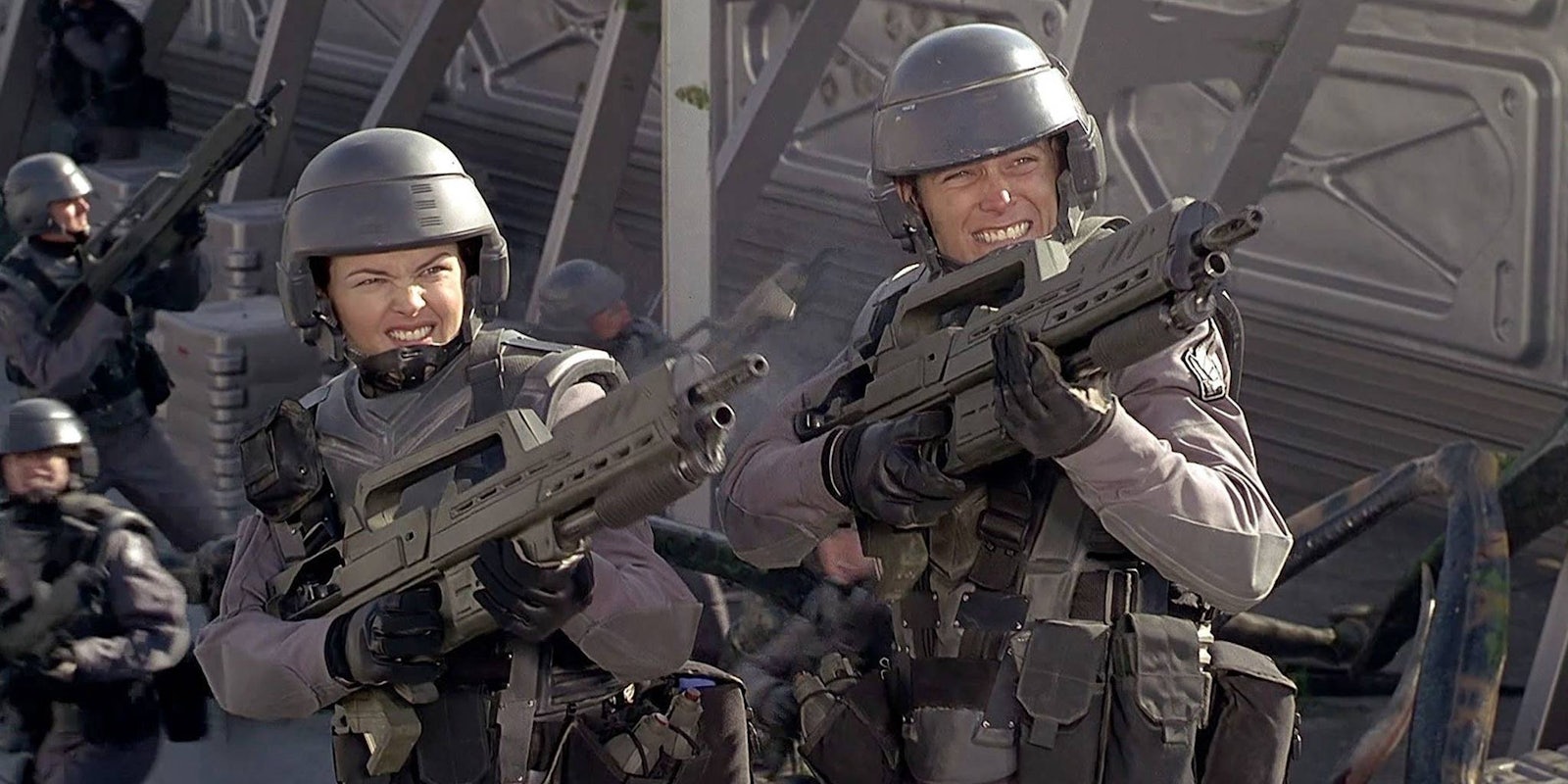The two versions of Starship Troopers couldn’t be more different. Robert A. Heinlein’s novel is a sober work of military sci-fi, and is featured on recommended reading lists for the U.S. Navy and Marines. Meanwhile, Paul Verhoeven’s movie adaptation is a satire featuring intentional fascist imagery, intended as a critique of American militarism.
The political tone of Verhoeven’s Starship Troopers was not well-received when the film came out in 1997, but since then it’s gained a cult following. Unsurprisingly, Verhoeven isn’t happy about the idea of a reboot—especially if it follows the politics of the novel, which has been criticized for glorifying war.
During a recent Q&A, the filmmaker spoke about Hollywood’s attempts to remake his films, saying, “the studios always wanted not to have a layer of lightness, a layer of irony, sarcasm, satire.” (Robocop and Total Recall were both rebooted in the last few years, without much success.)
He mentioned reading an article about the new Starship Troopers reboot, which will look to the novel for inspiration instead of following the satirical tone of Verhoeven’s movie. “We really, really tried to get away from the novel, because we felt that the novel was fascistic and militaristic,” he said. “You feel that going back to the novel would fit very much in a Trump Presidency.”


